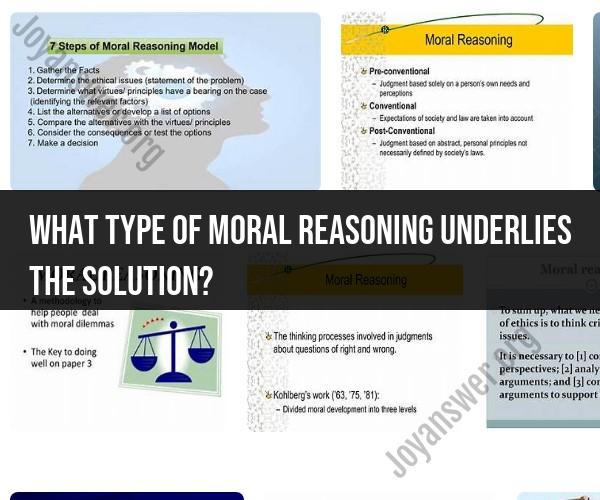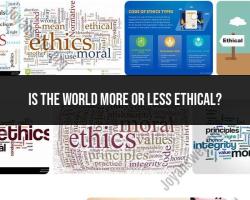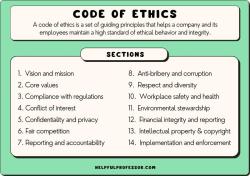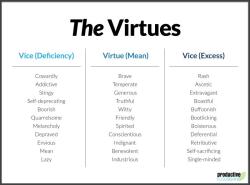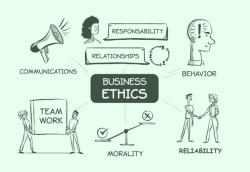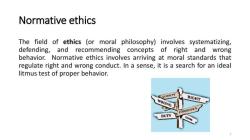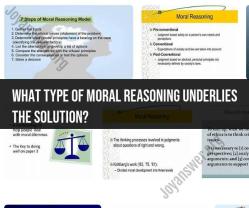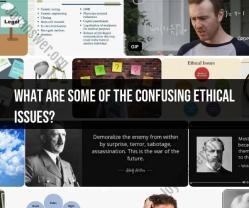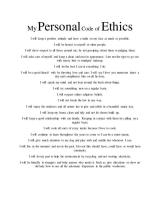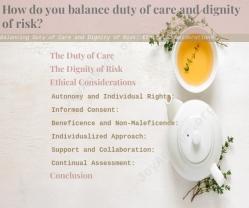What type of moral reasoning underlies the solution?
Moral reasoning can be categorized into several types or ethical theories, each of which is associated with distinct underlying principles and approaches to problem-solving. The type of moral reasoning that underlies a solution depends on the ethical framework or theory used to analyze and address the moral issue. Here are some common types of moral reasoning and their underlying principles:
Deontological Ethics (Duty-Based):
- Deontological ethics, often associated with philosophers like Immanuel Kant, emphasizes the importance of moral duties and principles. Actions are considered morally right or wrong based on whether they adhere to these duties.
- Underlying Principle: The fundamental principle of deontological ethics is the concept of duty and the categorical imperative, which states that people should act only according to principles that can be universally applied without contradiction.
Consequentialism (Outcome-Based):
- Consequentialist ethics, including utilitarianism, focus on the outcomes and consequences of actions. The moral rightness of an action is determined by its overall utility or the greatest good for the greatest number.
- Underlying Principle: The principle of maximizing overall happiness or minimizing harm is at the core of consequentialist ethics.
Virtue Ethics:
- Virtue ethics, as developed by Aristotle, emphasizes the development of virtuous character traits and the cultivation of personal virtues. Moral actions flow from the character of the individual.
- Underlying Principle: The central principle is the cultivation of virtues, such as honesty, courage, and compassion, and living a life in accordance with these virtues.
Religious Ethics:
- Religious ethics are rooted in the moral teachings and principles of religious traditions. These moral systems often involve adherence to religious texts and doctrines.
- Underlying Principle: The principles of religious ethics vary depending on the specific religious tradition, its sacred texts, and teachings. For example, the Ten Commandments in Judeo-Christian ethics provide a set of moral guidelines.
Rights-Based Ethics:
- Rights-based ethics, associated with philosophers like John Locke and Immanuel Kant, emphasize the protection and respect of individual rights and freedoms.
- Underlying Principle: The foundational principle is the recognition and protection of individual rights, including the right to life, liberty, and property.
Ethical Egoism:
- Ethical egoism posits that individuals ought to act in their self-interest and maximize their own well-being.
- Underlying Principle: The principle of self-interest and personal benefit guides ethical decision-making in ethical egoism.
The type of moral reasoning that underlies a solution depends on which ethical theory or combination of theories an individual or group is using to evaluate the moral issue. In practice, people may draw from various ethical theories and principles to arrive at a solution that aligns with their own moral convictions or the ethical standards of their community, profession, or culture. The choice of ethical framework can significantly impact the proposed solutions and the moral judgments made in a given situation.
What type of moral reasoning is involved in the solution to a problem?
The type of moral reasoning involved in the solution to a problem will depend on the nature of the problem and the individual's own moral framework. However, some common types of moral reasoning that may be used include:
- Utilitarianism: Utilitarianism is a form of moral reasoning that focuses on maximizing the good for the greatest number of people. When solving a problem using utilitarian reasoning, one would consider the potential consequences of different solutions and choose the solution that is likely to produce the greatest good.
- Deontology: Deontology is a form of moral reasoning that focuses on following moral rules or principles. When solving a problem using deontological reasoning, one would consider which moral rules or principles apply to the situation and choose the solution that is most consistent with those rules or principles.
- Virtue ethics: Virtue ethics is a form of moral reasoning that focuses on developing and practicing good character traits. When solving a problem using virtue ethics, one would consider which character traits would be most relevant to the situation and choose the solution that is most consistent with those character traits.
How does moral reasoning impact decision-making and ethical dilemmas?
Moral reasoning plays an important role in decision-making and ethical dilemmas. When faced with a difficult decision, such as whether or not to lie to someone or cheat on a test, people use their moral reasoning to weigh the different options and choose the one that they believe is the most ethical.
Moral reasoning can also help people to resolve ethical dilemmas. An ethical dilemma is a situation in which there is no easy or clear-cut solution. For example, a doctor may be faced with a dilemma in which they have to choose between saving the life of a patient who is dying or saving the life of a pregnant woman and her unborn child. In this situation, the doctor would need to use their moral reasoning to weigh the different options and choose the solution that they believe is the most ethical.
- Examples of moral reasoning in different ethical contexts
Here are some examples of moral reasoning in different ethical contexts:
- Business ethics: A business owner may use moral reasoning to decide whether or not to lay off employees in order to save money. The business owner may consider the potential impact on the employees and their families, as well as the impact on the company's reputation.
- Medical ethics: A doctor may use moral reasoning to decide whether or not to provide life-saving treatment to a patient who is suffering from a terminal illness. The doctor may consider the patient's wishes, the patient's quality of life, and the potential impact on the patient's family.
- Environmental ethics: A person may use moral reasoning to decide whether or not to drive a car or use public transportation. The person may consider the environmental impact of driving, as well as the convenience and cost of public transportation.
- Main approaches to moral reasoning and ethical philosophy
The main approaches to moral reasoning and ethical philosophy include:
- Utilitarianism: Utilitarianism is a form of moral reasoning that focuses on maximizing the good for the greatest number of people. Utilitarians believe that the right action is the one that produces the greatest good for the greatest number of people.
- Deontology: Deontology is a form of moral reasoning that focuses on following moral rules or principles. Deontologists believe that there are certain moral rules or principles that must be followed, regardless of the consequences.
- Virtue ethics: Virtue ethics is a form of moral reasoning that focuses on developing and practicing good character traits. Virtue ethicists believe that the right action is the one that is consistent with good character traits.
- Social contract theory: Social contract theory is a form of ethical philosophy that views society as a contract between individuals. Social contract theorists believe that individuals have certain rights and obligations, and that society is structured to protect those rights and obligations.
How can individuals develop and improve their moral reasoning skills?
There are a number of things that individuals can do to develop and improve their moral reasoning skills. Here are a few tips:
- Expose yourself to different moral perspectives: It is important to be aware of different moral perspectives in order to develop your own moral reasoning skills. You can do this by reading books and articles about ethics, talking to people with different moral beliefs, and watching movies and TV shows that explore ethical issues.
- Think critically about moral issues: When you are faced with a moral issue, don't just accept the first answer that comes to mind. Instead, take some time to think critically about the issue and consider different perspectives.
- Be willing to change your mind: It is important to be open to changing your mind about moral issues. As you learn more about ethics and different moral perspectives, you may find that your own moral beliefs change.
Developing and improving your moral reasoning skills is an ongoing process
